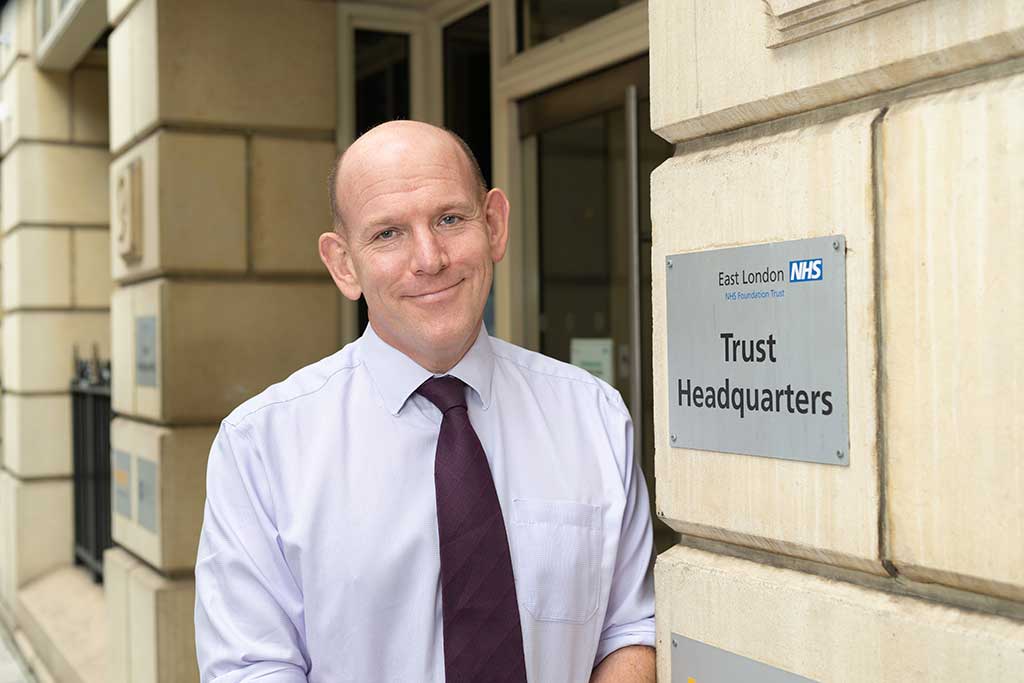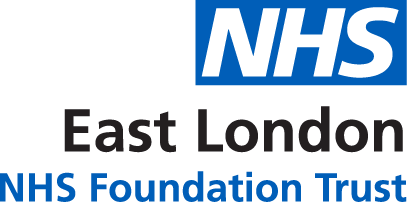Exclusive Interview with Paul Calaminus, CEO

Congratulations on being appointed as ELFT's Chief Executive. You have been ELFT's interim CEO since September and led ELFT's COVID response as Chief Operating Office before that.
What stands out for you about this challenging time?
The fortitude of our staff. The understanding of people who we support who knew we were under pressure. The support and mutual aid from partner organisations. The flexibility and concerted effort of everyone to make things happen in a fast-changing landscape
What will be your main focus in the coming months as we recover and pull out from the pandemic?
For me it will be ensuring that we do recover from the pandemic to be able to help our service users try to recover.The impact of last 18 months will be felt for a long time to come both personally and socially in our communities. Our focus has to absolutely be on our connections with each other and with service users. I want us to focus on what we can all do together to improve the quality of life of people we support.
Additionally, I want us to refresh the Trust’s strategy. A lot has happened in the last five years. We need to plan for the future. A key area I want us to address is the inequalities experienced by many in the areas we work in, highlighted in the pandemic. I would also like us as a Trust to start working towards being an anti-racist organisation.
How do you communicate your ideas with staff and how do you get feedback from them?
By talking to people, doing walkabouts, in meetings and through discussion. It’s all about conversations, formal and informal. I am about to reinstate visits so that I can join staff for face-to-face communication over lunch, breakfast or a cuppa. Although you can convey a lot in online meetings too. Additionally, anyone can contact me - and they do. About all sorts of things: problems, triumphs and passions. I value that they do. I also work closely with our Unions leads, staff governors and our Freedom to Speak Up Guardian.
How do you get a feel for what service users, carers and the public want from local health services?
Service users tell you. I am involved in many conversations and people write or email me directly. I like it when conversations move from needs to solutions. The Befriending Service set up during the pandemic is one such conversation. Service users knew what they were going to do about loneliness and isolation. They asked us to help with some phone lines and psychology support.
I am part of forums for discussion and action. Our Governor and annual plan meetings are where the action takes place. For example, the successful Lighthouse project in Leighton Buzzard arose from one such conversation.
We are probably a bit weaker when it comes to liaising with the public. But we gain the public views via local councillors, through our own staff telling us, GPs and others. We also have a greater understanding of need through data. Our Population health team help us to understand health trends, inequality, rates of illness, etc.
What drew you to working in the NHS?
I joined the NHS Management Training Scheme from University. I liked what the ‘purpose’ of the NHS was. I was and remain fascinated by the size and complexity of the NHS. Also, most of my family on both sides work in healthcare so I think it’s in our DNA.
What excites/makes you proud about the work of the Trust?
The way people live the values of the Trust. There’s a real generosity of spirit here and a willingness to do new things. There is a great deal of innovation.
Working together with service users is inspiring and the ability many people in the Trust have to care with other people. They are interested in people and that really comes across. I love that we have really high standards and I love that many here are opinionated and vocal! Teams in the Trust see a problem and think how can we improve it. They can have difficult conversations with each other when things are hard to talk about.
What areas do you think the Trust needs to improve on?
Consistency. It’s not the same everywhere. So how can we best spread innovation and best practice around the Trust? If we could work out a way to do that, we would be in a good place. We get complaints when our processes don’t work and we let people down. And sometimes about the attitude and behaviour from some which of course is unacceptable.
If you weren't an NHS leader, what alternative career/job would you have opted for?
A professional rugby player!
How do you switch off and manage the pressure of your demanding role?
I still play rugby. Going the gym helps enormously but I suppose, at this stage of my life experience, I just turn it off until I am at work the next day.
